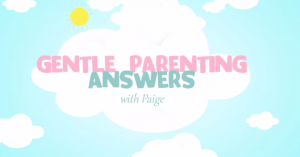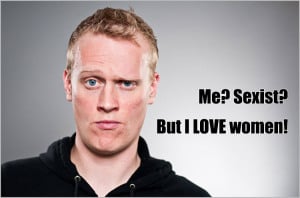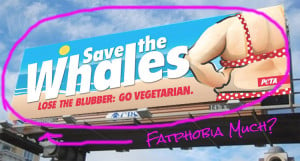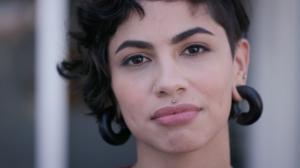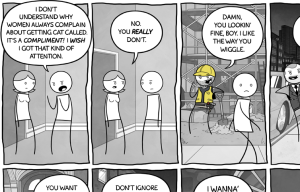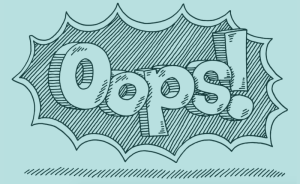
Two friends are hugging one another – one with their face turned away from the camera, the other with their eyes closed and facing the camera.
“Maybe you should see a sex therapist,” one of my closest friends suggested, after I told her my boyfriend and I were having trouble with my asexuality.
“I’m asexual, Cammie. It’s a sexual orientation. It’s not exactly something you can fix–”
“Well, I don’t think you’re trying hard enough,” she said. “How do you expect him to work this out with you if you’re not even willing to try to solve your problem?”
I didn’t feel like protesting any more after Cammie’s last remark, so I gave up and changed the subject. She wasn’t the first to suggest I seek professional help. A few other friends felt my “problem” was psychological, and could be worked out with several trips to a therapist.
I was tired of people telling me there was something wrong with me and hated the reminder that I wasn’t like everyone else.
So I stopped telling friends about my asexuality after that talk with Cammie, but I still needed advice on how to handle my relationship with my allosexual boyfriend. Without bringing up asexuality, I mentioned to another friend that my boyfriend and I were having trouble because of our mismatched levels of sexual desire.
“Have you ever thought about attending an asexual support group or meeting for advice?” she asked.
For a few seconds, I didn’t answer. Her willingness to acknowledge asexuality surprised me.
When I’d mentioned to her that I might be asexual several months before, she shrugged it off and said my boyfriend probably wasn’t “doing it right.” Since then, she’d read up on the subject. (Thank goodness for intersectional feminist friends!)
I finally had a friend I could be open with about my sexual orientation and talk to about my relationship.
We spent the next few hours brainstorming ways to make my relationship work and picking out a few “Ace Pride” t-shirts for me to wear during the next Pride parade and Asexual Awareness Week.
That was the only positive encounter I’ve had revealing my asexuality.
Though many of my friends’ reactions to my asexual reveal were either neutral or discouraging, their responses were understandable. We live in a society where sex is nearly everywhere, so many cannot fathom living without sexual desire and/or attraction.
Because asexuality isn’t widely known, friends of asexual people may (understandably) not know how to respond when their resident ace comes out to them. They might unintentionally make several invalidating remarks aces commonly receive when they come out, such as “This is just a phase” or “You haven’t met the right person yet.”
When your friend comes out as asexual, think carefully about how your words can discredit their feelings, especially if you’re unfamiliar with the asexual experience. Use these six ace-friendly tips to help you support a friend who came out as asexual.
1. Tune In and Allow Them to Express Their Emotions
Aces can feel a range of emotions when they realize that they’re asexual.
Some are relieved or proud to find a word that describes their experience. Some feel thankful to know there are other people like them. Some are disappointed, feeling they’re lacking something vital. Others still are indifferent.
Others feel the way I previously felt – like I was broken or that something was wrong with me.
I had several questions: Will I have a happy life without sexual desire and attraction? If my friends couldn’t even accept it, will any romantic partner accept my asexuality? Will I die a cat lady? (This was a serious fear, considering I’m also afraid of cats.)
Asexuality can be confusing.
Some aces can’t seem to wrap their heads around a desire and feeling that their friends, favorite musical artist, characters on TV, and nearly everyone around them raves about.
When someone discovers they’re in the 1% of the population that doesn’t experience sexual attraction, they must learn to navigate a world where sex is considered normal and even mandatory for a happy life.
Depending on how your ace friend feels about their asexuality when they come out to you, it may be an emotional revelation.
If they are like me, they may need to be the shoulder they lean on. If they need to cry, let them get it out. If they have a long story to tell you about how they came to the realization, take some time to let them get it off of their chest.
Be sure to let them express themselves before you offer opinions and advice. In the moment of their reveal, it is important that your friend is affirmed.
2. Acknowledge Their Experience as Real
Nearly every “out” ace will have a story about how someone told them their asexuality isn’t possible.
For some reason, many people want aces to somehow prove they are actually asexual. They want to make sure the ace doesn’t have a hormonal imbalance or that their friend wasn’t “doing it wrong” in the bedroom.
It’s quite presumptuous when people assume to know more about someone’s sexual orientation than the person themselves.
And when invalidating an ace’s experience because it isn’t something you’re used to, you create an oppressive dynamic.
You set up an environment that doesn’t acknowledge your friend’s experience as legitimate. This form of prejudice suggests that only the allosexual experience is real and that something is wrong with people who don’t feel sexual attraction or desire.
When my friends denied my asexuality, it meant that there was a part of my life I couldn’t share with them. I had to gloss over the trouble in my relationship with the lie that “yes, everything is fine with us.” But everything was not fine.
For a while, I had no one to confide in about my fears of how my life would be different because I’m asexual.
Denying a friend’s asexuality creates a space where an ace cannot be fully themselves, which can put a strain on an otherwise successful friendship.
Instead of responding with the typical problematic responses, let your friend know you’ve got their back and that they can confide in you if they need to.
If they’re feeling down, you should reaffirm that it is okay to be asexual. If you’re slightly familiar with asexuality, you can share where you’ve learned about it to remind them that asexuality is a normal experience for many people.
Responding in an uplifting, ace-positive fashion is the best call.
3. Be Aware of What They Actually Need
Friends and family members who reveal their asexuality may need various methods of support, including relationship advice, comfort, an open heart, or help telling another friend or family member.
Aside from asexual people on the Internet, aces may not personally know people who can relate. It helps to have at least one friend who’s aware of what they’re going through.
It’s also important to realize that your asexual friend may not need anything from you, including advice or guidance. They might have come out to you because they wish to be open about their sexual orientation.
In that case, be careful about unsolicited advice from a privileged point of view. Sometimes, it just isn’t necessary.
In the same vain, avoid a pity party. Pitying your friend only reinforces the idea that something is wrong with them. Asexuality is a normal experience. You don’t have to apologize for your friend’s lack of sexual attraction or desire. A lot of aces are perfectly fine with their asexuality. You might find that your friend is proud of it.
Finding out what your ace friend actually needs is a better way to be supportive.
You may be able to figure out how your friend is feeling about their asexuality based on how they come out you. They may say it casually or teary-eyed – and if you know this person well enough, you might know exactly what they need.
If not, ask your friend how you can support them. Asking gives your friend the agency to let you know what they need, rather than you telling them what you think they need.
4. Offer to Help Them Find an Ace Community, If Desired
Finding an ace community online was how I was eventually able to accept my asexuality.
I found aces on social media who shared their stories. I found an ace blog of affirmations or “affirm-ace-ions” to uplift asexual people. There were videos that brought me to tears with how aces struggled with relationships. I found aces who are black, like me, and are proud of their asexuality and blackness.
This community was vital.
The asexual community offers discussion on asexual topics, advice from first-hand perspectives, and a lot of particularly “punny” asexual jokes.
If your friend is open to meeting other aces, help them search for an ace community.
You’ll find aces congregate on Internet forums and social media groups. Start with the Asexual Visibility and Education Network and Tumblr. Those two sources provide general information along with forums and blogs for aces of color.
Asexual groups in larger cities sometimes host get-togethers and will share this information on their websites, Meetup pages, or Facebook groups.
Additionally, some LGBTQIA+ groups open their doors to asexual people. If you’re lucky, you might even find a few ace flags waving at your local Pride parade.
The friend who accepted my asexuality will join me at my first Pride parade as an “out” ace. She’ll be my “security blanket” friend who acts as my emotional support. Many aces can use a friend like this.
An asexual community can be an additional support system for many aces. Helping your friend find community can strengthen their pride in their asexuality.
5. If It’s a Secret, Keep It That Way
No matter the sexual orientation, it’s not okay to out anyone.
Sure, you may not be telling a juicy story about an epic love affair (though, you’d be surprised), but outing an ace means disclosing personal info about their sexuality.
An ace’s sex life, or lack of sex, is no one else’s business.
I’ve never been outed; however, I’ve read a few stories on ace forums and advice websites about being outed. Many outed aces were met with denial of their sexual orientation. Some reported that the denial caused them to question their sexuality, while others felt violated because their secret was shared without their consent.
Remember that asexual people are not required to be out. They may not tell others due to fear of potential rejection, they don’t want to give the lesson on asexuality, or they simply do not care to tell the world, among other reasons.
That’s their decision – and it should be respected.
6. Consult Additional Resources
Don’t assume your asexual friend knows everything there is to know about asexuality.
Asexuality is a complex spectrum, and there’s always more to learn about it.
AVEN provides a robust amount of information on the subject. Aces also host blogs on Tumblr, have groups on Reddit, and use other social media sites to answer questions about asexuality. They provide first-hand accounts of many aces’ experiences. And if you’re “old school” and prefer books like me, I found The Invisible Orientation by Julie Sondra Decker beneficial.
These resources helped me transition from denial, to coping, to accepting my asexuality. They will help you better understand your friend’s asexual experience. They can provide info on the identities under the ace umbrella, including gray asexual and demisexual. They may also offer more advice on how to support your ace friend.
After browsing the web, my supportive friend found a website for ace clothing that I previously wasn’t aware of. We bonded over shopping for ace and ace ally swag for the next Pride parade.
If you do your research, you may find a few resources to share with your ace friend.
The more you know about asexuality, the better of an ally you can be for your ace friend and aces around the world.
Asexual groups strive for visibility, representation, and awareness to create more ace-friendly environments. When friends of aces understand more about asexuality and accept it as legitimate, they support an ace-positive movement that helps make our society a bit more inclusive.
***
Having supportive friends makes being an “out” ace easier, especially in a society that appears so hypersexual on the surface.
Despite our society’s common belief that allosexual is “normal,” these friends ensure that aces feel included. They remind aces that we are valid and they welcome aces to be themselves.
And every ace can use a friend or two like this.
[do_widget id=’text-101′]
Shae Collins is a Contributing Writer for Everyday Feminism. She enjoys educating and uplifting by aiming a black feminist lens at pop culture on her blog, awomynsworth.com. She’s been published in Ms. Magazine, For Harriet, and Blavity. Laugh with her on Twitter @awomynsworth.
Search our 3000+ articles!
Read our articles about:
Our online racial justice training
Used by hundreds of universities, non-profits, and businesses.
Click to learn more







